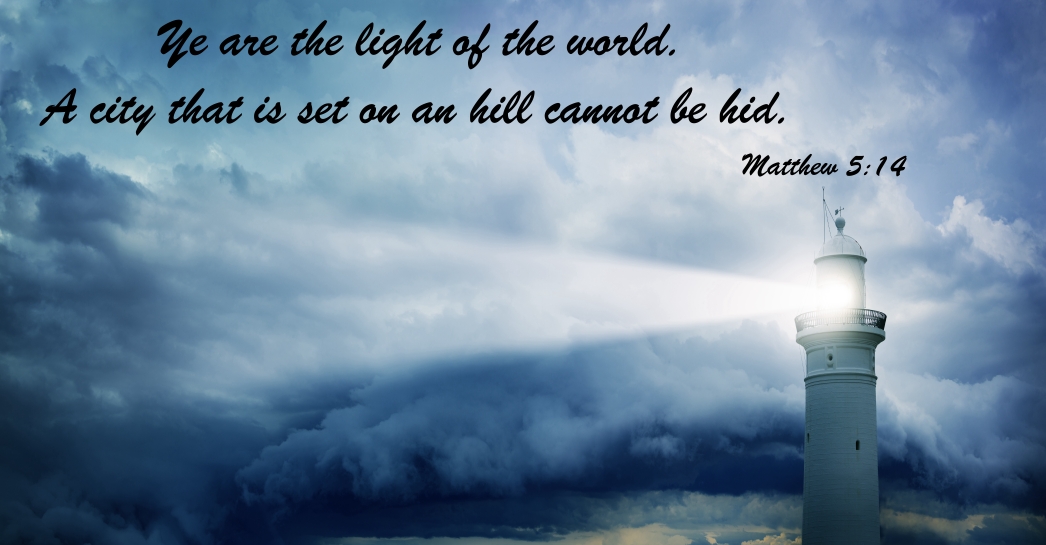THE SEED
“You are the light of the world. A city that is set on a hill cannot be hidden.“ Matthew 5:14 NKJV
Comparing us, the children of God to a city on the hill which is not hidden from people to see. This gives us an understanding of how our lives should be shining in the world. Light and darkness are opposite and can’t operate together. The presence of light would always drive the darkness away or influence it to make it insignificant. This was demonstrated by God at the creation of the world, the Bible stated in Genesis 1:2 that there was darkness over the surface of the deep but when God appeared, because He is light, God spoke and there was light everywhere. The lesson from this is that, when we accept God as our Father and Jesus as our Saviour, we automatically become light in this world of darkness. And it becomes very important to us to reflect the light of God in everything that we do. When we reflect the light of God in our way of life the benefits include becoming a terror to the kingdom of darkness, our life glorifying God, we are empowered to do good, being endowed with divine wisdom, our lives bringing others to Christ and we have the assurance of both the heavenly and earthly reward. Beloved, let us emulate the life of Christ who shone the light of God by living in obedience to God’s instructions, believed totally in God and worked with His father wholeheartedly. Let our light shine to swallow all kinds of darkness around us.
BIBLE READINGS: Genesis 1:1-5
PRAYER: Lord, let your Spirit rest upon me to make my life a symbol of light to the world. Amen
IMOLE AYE
IRUGBIN NAA
“Ẹ̀yin ni ìmolẹ̀ ayé. Ilu ti a tẹdo lori oke ko le farasin.” Mátíù 5:14
Gege bi omo Ọlorun, a n Fi wa we ilu ti o wa lori oke ti ko farasin fun awon eniyan Lati ri. Eyi fun wa ni oye bi igbesi aye wa ṣe yẹ ki o tan ni agbaye. Imọlẹ ati òkunkun ta kora won, won ko le ṣiṣẹ papọ. Ifarahan imọlẹ nigbagbogbo yio bori òkunkun tabi ki o so di alailagbara. Eyi jẹ afihan nipasẹ Ọlọrun ni ẹda aye, Bibeli sọ ni Genesisi 1: 2 pe òkùnkùn biribiri bori ibu ṣugbọn nigbati Ọlọrun farahàn, nitori pe oun ni imọlẹ, Ọlọrun sọ̀rọ pe ki imolẹ̀ wà nibi gbogbo. Ẹ̀ko láti inú èyí ni pé, nígbà tí a bá gba Ọlorun gege bí Bàbá wa àti Jésù gege bí Olùgbàlà, a máa di ìmolẹ̀ nínú ayé òkùnkùn yìí. Ati pe o di pataki pupọ fun wa lati tan imọlẹ Ọlọrun ninu ohun gbogbo ti a ṣe. Nigba ti a ba ṣe afihan imọlẹ Ọlọrun ni ọna igbesi aye wa awọn anfani ti o tele yio jẹ ẹru jeje fun ijọba okunkun, igbesi aye wa yio fogo fun Ọlọrun, a fun wa ni agbara lati ṣe ohun ti o dara, yio fun wa ni ọgbọn atọrunwa, igbesi aye wa nmu awọn ẹlomiran wa si odo Kristi ati o si fun wa ni idaniloju ere ọrun ati ti aye. Olufẹ, ẹ jẹ ki a fara wé igbesi-aye Kristi ẹni ti o tan imọlẹ Ọlọrun nipa gbigbe ni igbọran si awọn ilana Ọlọrun, gbagbọ patapata ninu Ọlọrun o si ṣiṣẹ pẹlu baba Rẹ tọkàntọkàn. Jẹ ki imọlẹ wa ki o tan lati gbe gbogbo iru okunkun mì ni ayika wa.
BIBELI KIKA: Jenesísì 1:1-5
ADURA: Oluwa, jẹ ki Ẹmi rẹ bale mi lori lati sọ igbesi aye mi di aami imọlẹ si agbaye. Amin
